“What My Soldiers Need to Know is That in the IDF, We Don't Leave Anyone Behind.”
During the final stage of their training, after eight rigorous months, comes the ultimate test known as War Week. Captain K., commander in the 202nd Paratroopers Battalion, describes how this concluding phase not only shapes his soldiers but also continues to shape him as a commander.
War Week is the final stage in the 30-week training program in the Paratroopers Brigade. They spend the whole week simulating war, sleeping in difficult conditions, jumping from one drill to another. Drills include operating in urban warfare, open fields, as close as possible to what real war looks like. Most of the commanders here come directly from active combat, giving them firsthand insight into accurately replicating real battlefield conditions in training. The program culminates with the beret march.
“I was a soldier here in training almost 6 years ago,” stated Captain K., commander in the 202 battalion. “Since October 7th, the drills look entirely different. We've managed to bring a lot of tactics that we saw worked in the war, those we didn't necessarily use beforehand.”
“The main difference is now we focus a lot more on urban warfare. Both in Gaza and Lebanon, a lot of combat happens within urban neighborhoods unfortunately. We combine different types of weapons, machines and equipment that we didn't use before the war started…”
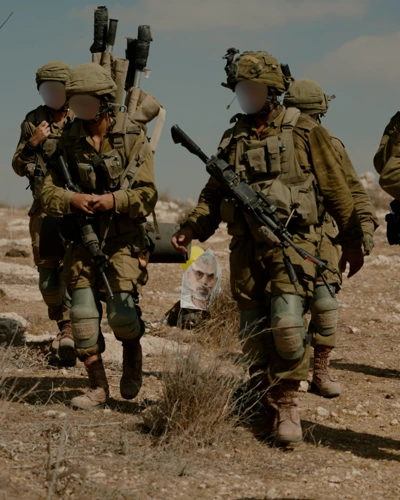
Another major difference is that in this war, soldiers learned how important cooperation with different units really is. In Gaza, the Paratroopers fight together with the tank unit, or with engineering assistance. “During basic training, each unit goes through personalized training tailored for their unit, but throughout the war we've learned how necessary it is that the different units know how to combine their skills together.”
This War Week, different troops from different units have been brought in for training with the Paratroopers, to help teach the soldiers how to work together with other IDF forces. Commanders simulate discussing tactics and preparing missions, after which the soldiers have to figure out how to best operate in coordination with one another.
Mentally, this training is designed to prepare soldiers to withstand extreme stress and the intensity of demanding conditions. “It’s almost like a survival trial. It pushes you to your limits. The goal is for them to emerge physically strong, capable of carrying heavy equipment, enduring long marches, completing rigorous drills, and sustaining their performance under pressure.”
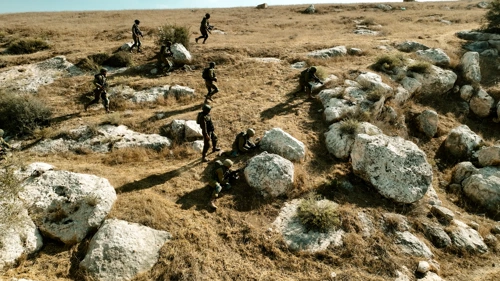
“I wish for these soldiers to be as strong as possible and have all the skills for war if needed, but I truly hope they won't have to use it. But if we do, these soldiers will be the strongest - they can face anything that stands before them.”
From the perspective of a commander, War Week is the moment they watch all their work culminate. The lessons they've taught, the values they have instilled, all come to light in this last stage.
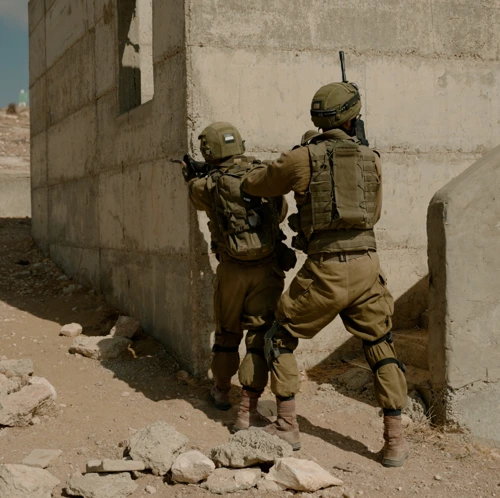
“It’s very fulfilling to watch them go through what we've been seeing on different fronts nowadays, whereas a few years back we didn't even really understand what we were training for and didn't have the same vision we have now. People are more ready, the training we give over is more precise, more professional.”
According to Captain K., teaching soldiers how to tend to an injured comrade is his most vital lesson. “Before the war, we would have exercises where someone would pretend to be injured and the team of soldiers would have to work together to figure out how to evacuate and save him simultaneously. Nowadays, we actually know what that looks like. Unfortunately, we've seen it too many times, and how intense it truly is.”
“The soldiers pretending to be injured really have an important role, they usually feel bad that all their friends are carrying them on a stretcher when they’re not actually hurt. They want to help - but these boys have to understand what it's like carrying the broken body of your friend. These are real situations we’re going through every day in Gaza. This is one of the most important things commanders are implementing into the training now.”
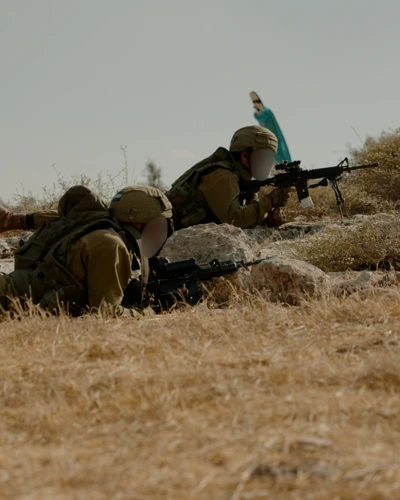
In the Paratroopers Brigade, the soldiers won't stop until their technique is 100%. They go back and start from the beginning, until they feel they’ve done as perfectly as possible. “We stop, analyze, and learn from our mistakes.”
“After studying tactics in a classroom, it takes tons of trials of doing it in real life to perfect it. Textbooks won't help us here. You can't learn in a classroom what it means to fight while not sleeping for days on end, and not showering for weeks.”
Being a commander does come with its challenges however. These commanders are fully aware of what they’re sending their soldiers into. They understand that although this week it's just a simulation, next week it will be a real war.
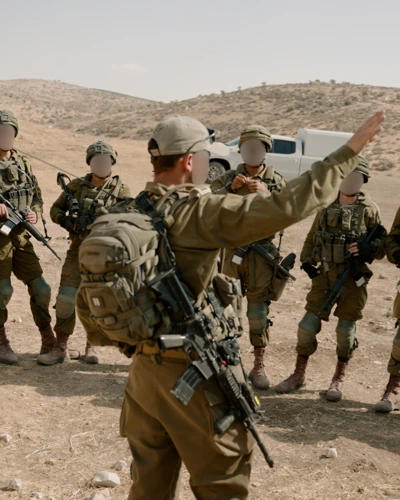
“It's hard sometimes being a commander. Obviously it's an honor, and amazing to be able to pass on skills, but you always feel the other side too. I want to be there, with my soldiers, part of the group actually fighting. One can't live without the other, both are very important, but it's hard.”
As War Week comes to an end, Captain K. imparts an important message - one he reiterates to his soldiers with emphasis.
“A successful war week is when everyone actually finishes, and makes it to the last task. If you can't finish, you're not ready to go to war. But most of all, it's important that everyone finishes together. The stronger ones help the weaker ones, and as long as everyone gets to the finish line together, as one unit, that's the most important. What my soldiers need to know is that in the IDF, we don't leave anyone behind.”
“You're never completely prepared. But our soldiers are very professional and trained, especially after this week. I believe they're ready.”

